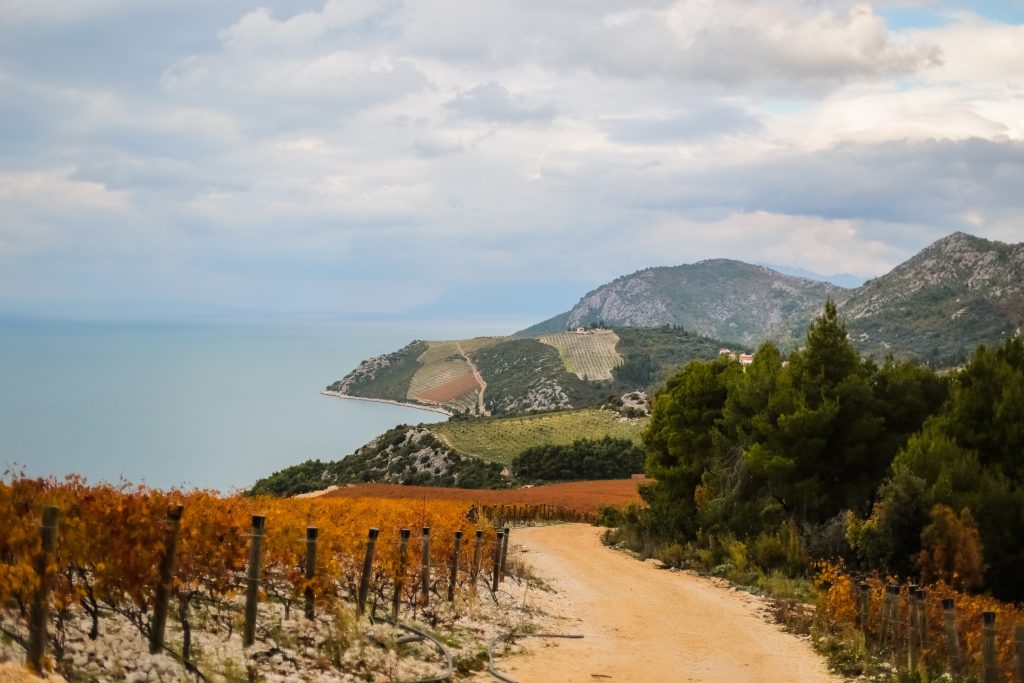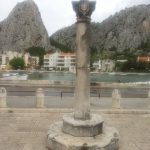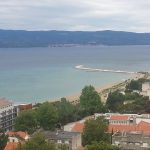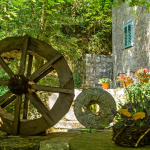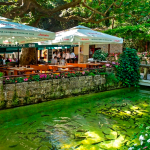Their first stop was in Opuzen where they toured the winery of their main hosts, Winemaking Prović, with a dinner in the Prović family hotel, named Merlot. The Prović family will next year have a double celebration marking 20 years of their cellar and tenth anniversary of their hotel whose name describes how their family story is connected to wine.
The Prović family grows grapes on terrain two kilometres from the Neretva river delta, buying some from a cooperative in the Neretva region. They tend to the vineyard themselves, the harvest is manual only, yield per vine is limited so they have a green harvest in early summer to ensure a high quality of wine. In the case of bad years, such as 2014, wines are not bottled.
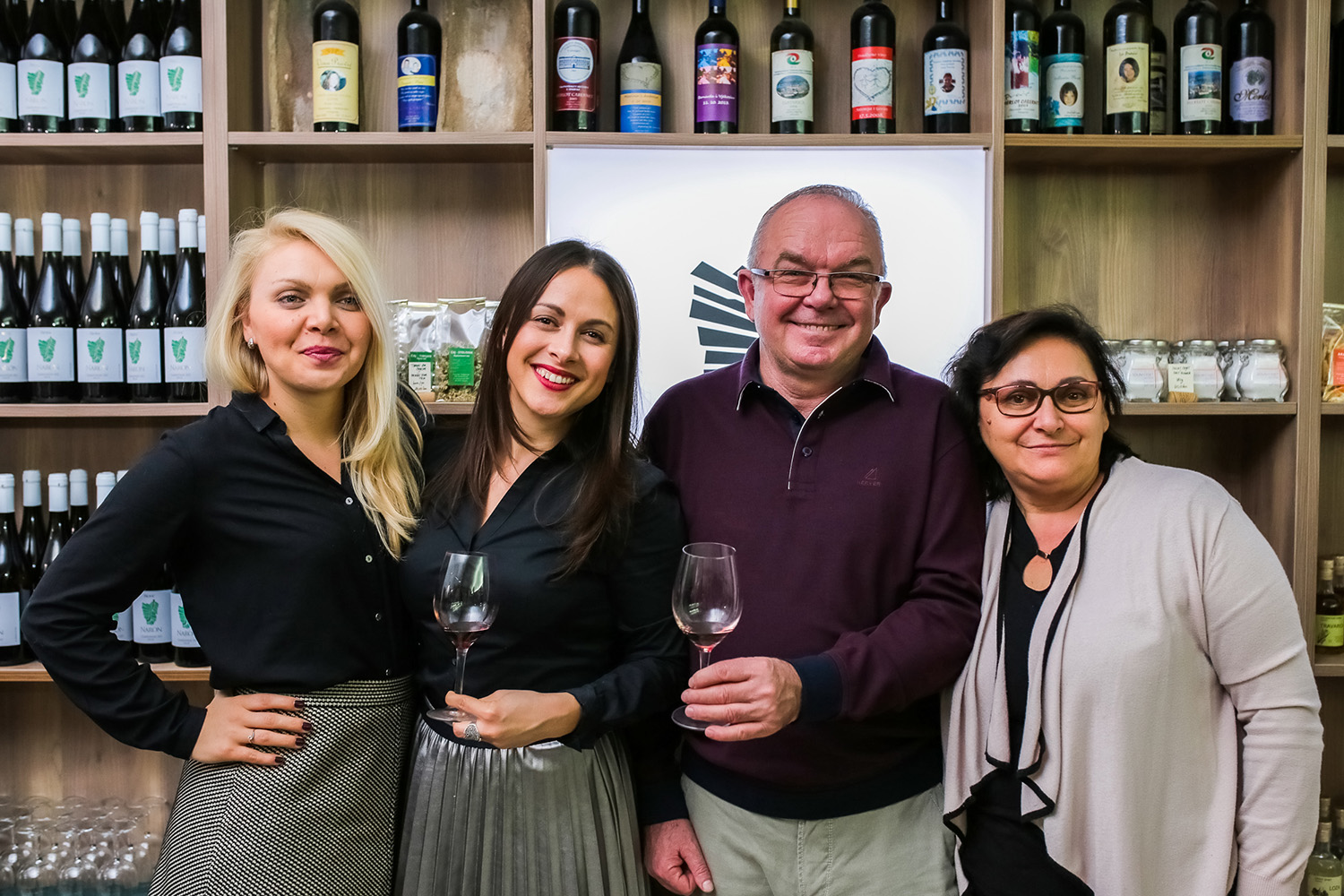
The wines were presented in the newly decorated tasting room by father Branko, daughter Monika, son Vjekoslav and mother Tereza, telling a story of the uniqueness of this terroir formed by two key factors: river and sea. The Neretva brought from Herzegovina mountains fertile humus, while the sea that covered the land and retreated after melioration, left behind a soil filled with sea fossils, minerals and shell fragments, all of which reflects strongly in the Prović wines: Zlatarica Livija, Chardonnay and a coupage of Merlot and Cabernet Sauvignon.
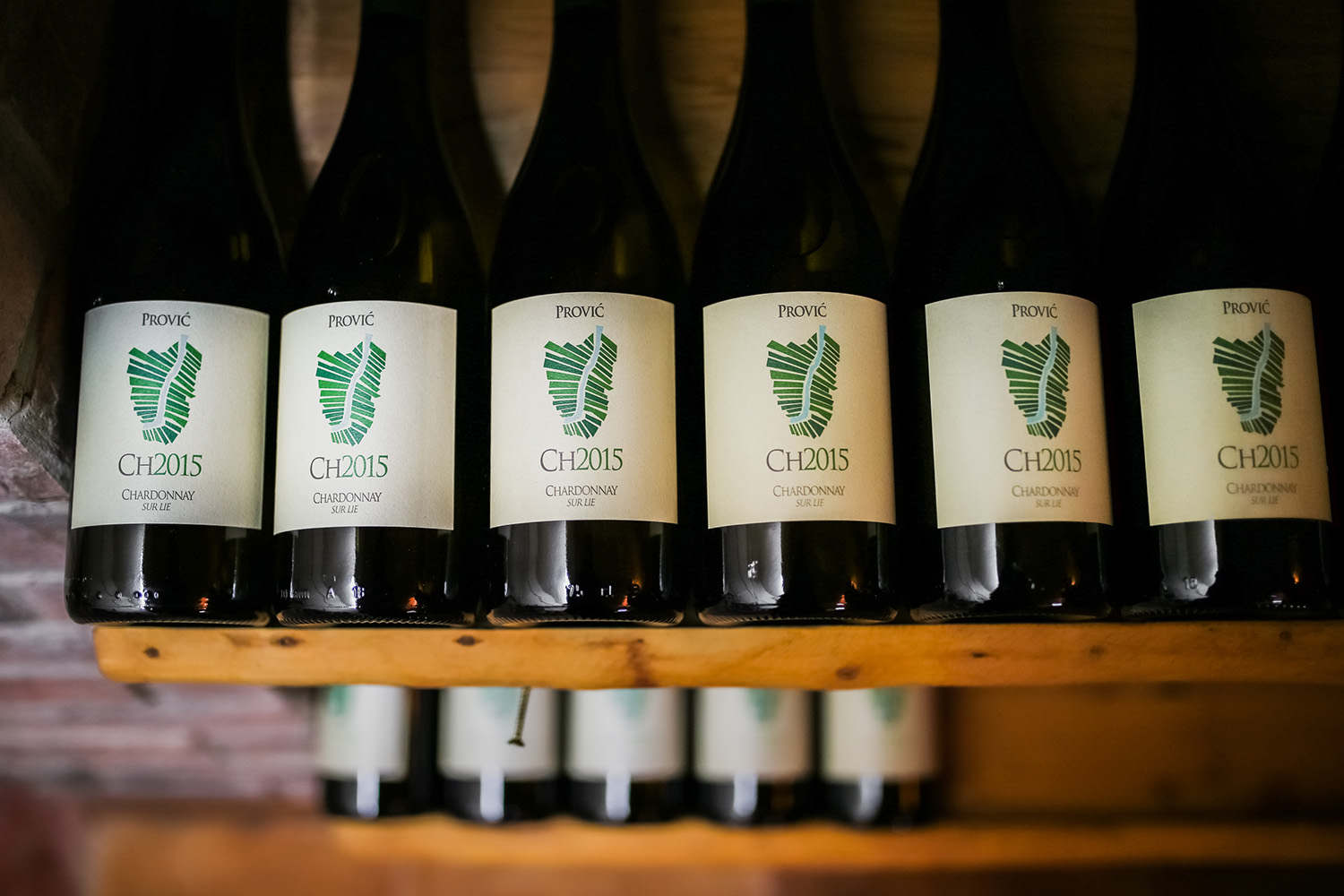
A special note of minerality is in their renowned Chardonnay, with the one from 2015 made with the sur lie method. The wine was after cold fermentation aged for four months on fine residue in small wooden barrels and gained a special creaminess, while retaining a fine fruit aroma and especially minerality, with the wood well composed and not covering aromas. It is interesting Branko Prović is a pioneer of planting Chardonnay in the south of Croatia, inspired by excellent expression of the sort in California, Australia and South Africa and by the success of Miljenko Grgić at the legendary blind tasting in France in 1976. At the time of the vineyard planting in 2002, the Chardonnay sort could only receive the table wine label as the sort was not on the list of recommended varieties. After the first harvest and a note to the Agriculture Ministry by the Prović family, joined later by some Pelješac winemakers, the variety was accepted on the list, so the Prović Chardonnay today bears the superior label.
Livija is a wine label from the Zlatarica variety which was neglected for years and used only for table wine, but the Prović’s, seeing the potential of the variety, decided to try it as a monosort wine believing better care in the vineyard and cellar can give much more. Livija is a light white wine, of fine fruit aromas, excellent acids and freshness that pleases quite well in the summer. 2015 was a trial year and based on its success the amount will be increased, with some new winemaking techniques applied.
The Bordeaux coupage of Merlot and Cabernet Sauvignon was brought up in two versions: basic and reserve. The reserve is named Modrič, made only in excellent years such as 2011 and ages two years in small wooden barrels and another year in bottles before the market. The so-called basic MC is aged for 15 months in wood and at least six months in bottles before sales. Both wines have a rounded structure, nicely schooled tannins with a note of minerality and saltiness with fruit aromas. the WOW girls tasted and bought some of the last bottles of Modrič reserve as the harvest is – sold out. The Prović’s have novelties this year: a rose from the Syrah variety and a Yellow Muscat which are still in the cellar.
Besides the wine and hotel, the family runs their own family farm so guests were offered fresh citrus fruit, their own olive oil, tangerine jam, dried figs and liqueurs. After a tour of the cellar, where the head of the family Branko demonstrated the method of mixing wine on fine residue (sur lie) and tasting of young wines, in the hotel restaurant a dinner ensued marked by eels, as its fitting considering the manifestation Neretva Eel Days 2016. The aperitif was a glass of the Domano sparkling, followed by the old Neretva dish, eel with collard, followed by a crunchy grilled eel and then an eel stew with polenta and homemade bread, with a bouquet of salads. For the end – “Neretva Jewel,” a special from clementines, almonds and dried figs. Dinner was served with Chardonnay Prović 2015 and a coupage MC Prović 2012.
Saturday morning was devoted to the Neretva Delicacies Fair on the Opuzen market where the main event was a cuisine show led by the chef Christian Misirač, Takenoko restaurant Dubrovnik and the Pivčeva Kala association. The market offered a presentation and sales of winemakers’ products, family farms, indigenous handmade products and not less important – raising funds for humanitarian causes.
A visit to the Volarević winery was next, in Prud near Metković. The welcome of the obliging and excellently informed expert, but still unpretentious Josip Volarević was a sign of things to come. This family proves that family entrepreneurship in Croatia is on healthy ground. Father and four sons have been successful in agriculture all of their life. They are proud owners of one of the leading nurseries in Croatia, with a plentiful and diverse offer of plants. After a tour of the nursery came a visit to their new tasting room in which WOW girls were the first guests.
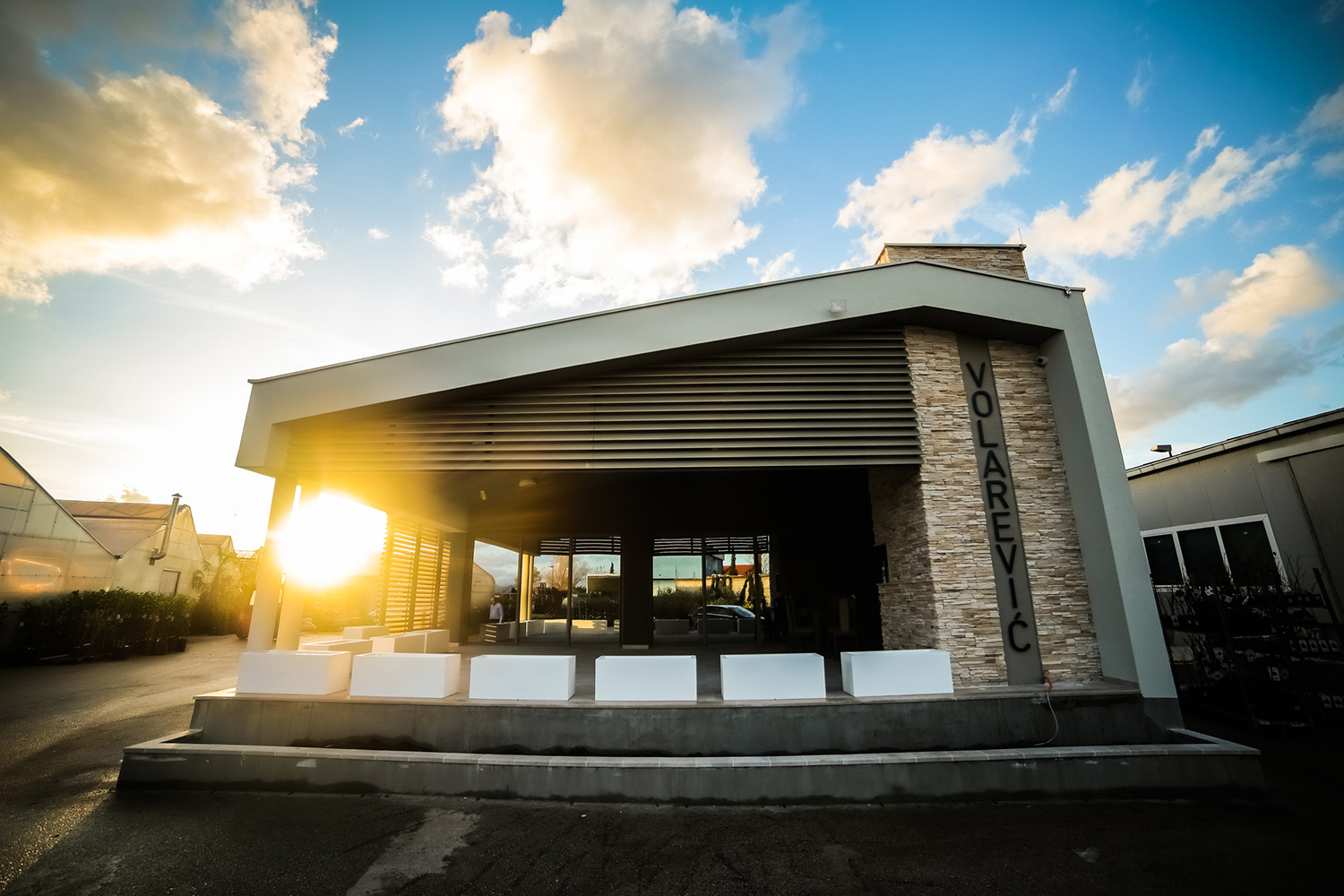
The first tasting here was of rose Syrtis from Plavac Mali, a wine that bears the gentle side of the rough, rocky and steep terrain dipped into the sea. As grapes in their ripening take on the characteristic of the terrain they grew from, in the rose the Volarević family wanted to preserve all that is primary to the terroir and present it in a milder form. Terroir is recognisable in high alcohols, slightly robust tannins and richness of aromas.
Superior wine Syrtis Pošip is of golden yellow colour with green nuances, finely presented scent of variety specifics, blossoming almond and bushes, fine bouquet with hints of candied orange peel, heather honey, with a classy, full, smooth taste. It is a dry wine of strong alcohols (13.5 percent), has a full body, rich and ideal acids, ripe and powerful.
Syrtis Plavac Mali edition sums up all the terrain characteristic and love from the cellar. It is of characteristic deep ruby red colour, dense with a dark blue shine that remains on the glass. Its scent is complex and uncovers typical variety aromas, a combination of fresh berry fruit and dry, slightly burned fruits as well as Mediterranean herbs aromas. Aging in wooden barrels these variety aromas are additionally enriched with wood aromas. High alcohol gives a sweet taste in the beginning, but has soft acids and is harmonious, full, strong.
There was no lack of song, music and good mood at the Volarević’s, especially since WOW girls were the first guests. The hosts did not let them off easily, complementing a rich dinner with freshly cut homemade prosciutto and extra glasses of wine, not forgetting an excellent desert from the family workshops of this honourable, hardworking and generous family.
The following day, WOW girls headed to Komarna and visited two more wineries. The first were the Terra Madre positions of the Poljopromet company at the very cape of Komarna. A completely new winery and tasting room are being built here with a wonderful view of the sea and Pelješac peninsula. Guests were greeted by owner Davor Martinović and his daughter Vedrana Martinović-Trutina.
The vineyard in the Komarna position is characterised by ideal wine growing conditions. The vineyard itself is on a limestone slope of a hill from 50 to 180 metres above sea level with a slant that varies up to 45%. Ideal orientation south-southwest, proximity of the sea and excellent aeration allow for ecological cultivation with exceptionally small need for protective treatment of vines (copper and sulphur). The microclimate with the number of sunshine hours, sea reflection of the sun, position and reflection of large limestone surfaces enables above average insolation. The soil is a mix of red soil and rocks, the Ph is 7.6 with traces of salt carried by northern Bora winds and planted are Plavac Mali, Pošip, Syrah, Cabernet Sauvignon, Chardonnay and Debit.
“The story of our vineyard began with the grunting of heavy machinery who dug their steel claws into large rocks and bushes, routing small rocks. In this story everything is natural, God given; from the planting, cultivation, protection, nourishment to the harvest and processing. Pure and natural drops from the rocks,” said the host, and WOW girls enjoyed the wonderful view and took a closer look at the construction of a modern winery that promises plenty, due to be completed soon, after the vineyards are harvested for the seventh time, winning awards and raising expectations.
With bites of cheese and prosciutto, fine wines were tasted and the “cherry on top” was a visit to the Rizman winery owned by the Štimac family, where we were hosted by Mihovil Štimac with father Vlado and family. Climbing to the winery on top of a hill above slopes planted with vines, the view of the “Neretva Kornati islands” and Pelješac grabbed everybody. Mihovil guided us through the estate where they planted Pošip, Plavac Mali, Tribidrag but also Tempranillo, Viognier and some other varieties used in coupages. Vineyards were planted on crushed rocks, limestone soil, steep slopes above the sea. Harvesting is manual and grapes are carefully selected, while during planting the Štimac family discovered a water source being used today. The family honours St. Mihovil as their protector, with a chapel in his honour next to the winery at 253 metres above sea level, the first building constructed on the property.
The tradition of wine growing in the Štimac family dates back to the beginning of the 20th century, the first vineyards planted by the great grandfather of today’s generation, Mihovil Mijo Popich, nicknamed Rizman, to whom the winery owes the name, with production restarted in 2006. New vineyards on new positions, with necessary infrastructure and a completely new wine growing region in Croatia. The Štimac family is the first investor in the region that now spans 80 hectares. A modern winery was constructed, in which they cooperate with the Adriatic Cultures Institute and have planted an experimental vineyard. They use advanced equipment and French oak, with a cellar expansion to come. They offer wines from the Brime label (Pošip and Plavac), premium wine Primus from the Plavac Mali variety. Their Pošip is made from their won vineyard that reaches all the way down to sea level. This variety is considered by many experts as our most potent white variety.
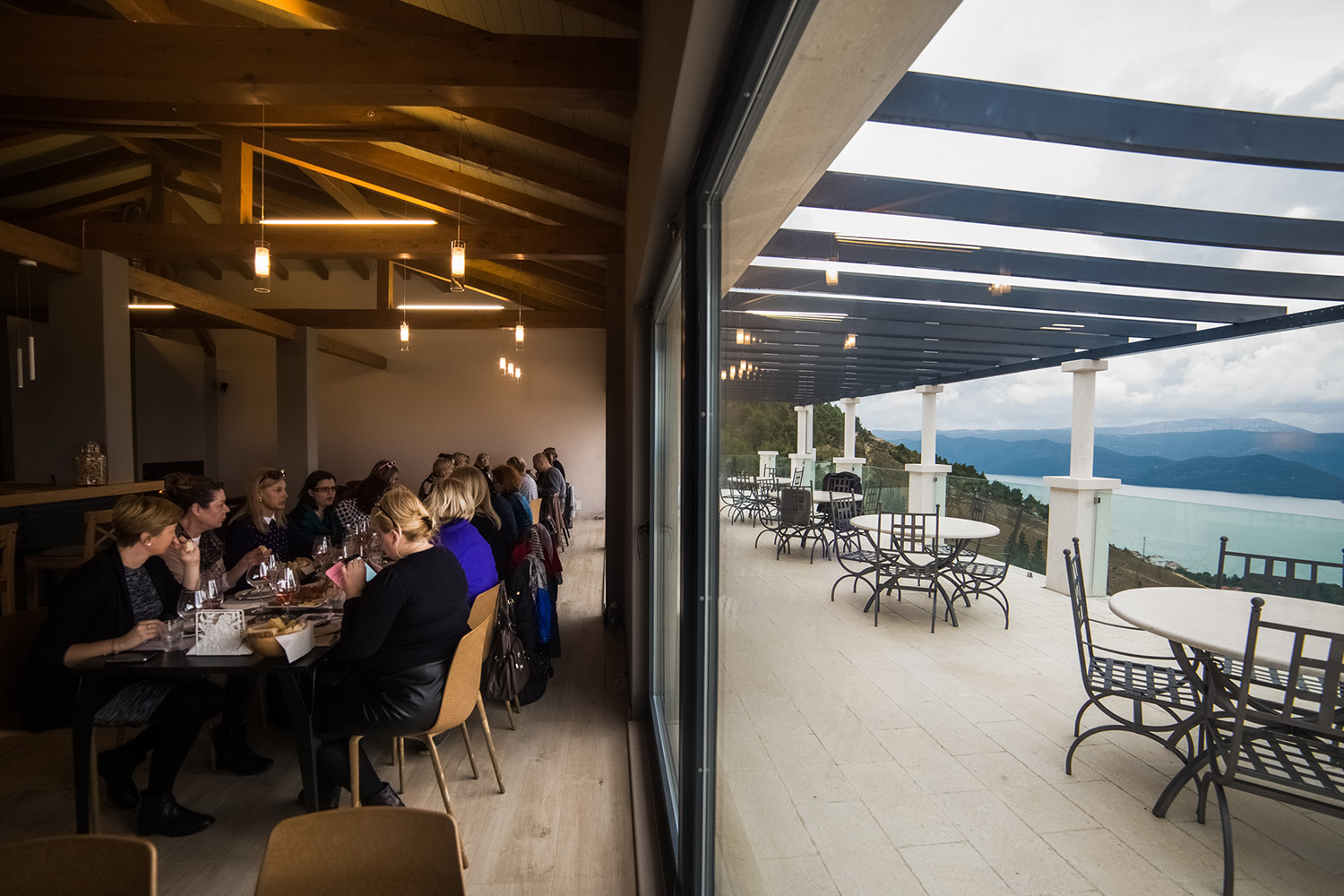
“With ecological grape production, modern processing and vinification, we attempted to draw the best from this variety and turn it into drops of wine. Fresh, fruity and scented, served at an ideal temperature of 10-12 Celsius, this Pošip is a treat for all white wine lovers. Nonno is also a Pošip, the name coming from the old Dalmatian name for grandfather and is a link to our brand Rizman, great grandfather’s nickname. It boasts a degree of extended aging in oak barrels combined with cold fermentation to produce an elegant and serious wine,” Mihovil said.
There is also the Barrique Pošip, Štimac Barrique No.1, as well as Tribidrag. This indigenous variety is also known as Kaštelanski Crljenak, renowned in the world as Zinfandel in the USA and Primitivo in Italy. The Tribidrag is produced here exclusively from the same name variety in their own vineyard at the micro location Raba on south and southwest slopes with up to 40% slant reaching down to the sea. Rose Rusula, which the WOW girls especially liked, is made from Plavac Mali, Tribidrag and Tempranillo grapes, named after the old Dalmatian name for a rose. This fresh and light wine needs to be served at 10-12 Celsius. Besides the wine, the family produces extra virgin olive oil of excellent quality. After a tour of the property we tasted wines with delicacies from their kitchen. First excellent prosciutto and cheese, olives, fish pate, dried tomatoes, marinated anchovies on arugula with capers, fresh oysters and something special: truly great salad with fresh mussels and an excellent black risotto from Adriatic squid with Tribidrag, while for desert grandmother Štimac made fragrant custard cakes. It was a weekend to remember, with the wonderful impressions just a call for more, as this place needs to be visited again in the spring when everything is green and something new to be tasted.
Text: Monika Prović, Adela Visković, Sanja Muzaferija
Photography: Studio Idearium

